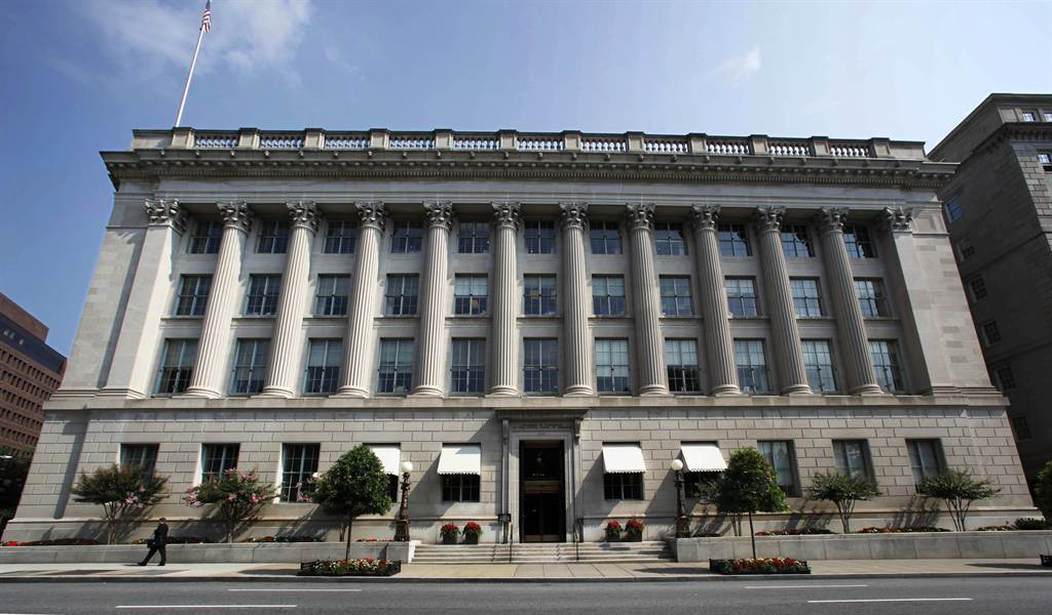On the 2008 campaign trail, President Obama unequivocally declared that the Export-Import Bank of the United States (Ex-Im Bank) is “little more than a fund for corporate welfare.” Flash forward six years, and the president’s Democrat allies in Congress are demanding that lawmakers “direct immediate attention” toward renewing the Bank’s authorization, which is set to expire in September of this year.
This drastic reversal is nothing short of appalling, especially when contextualized with the Bank’s tendency to harm American interests.
The Export-Import Bank is a federal agency that is backed by the full faith and credit of the American taxpayer. The Bank fulfills its task by offering loans at sub-market rates to foreign companies, wishing to purchase American products. As a result, there is a direct incentive for foreign based companies to import American goods. In reality, what the Bank does is hide behind its alleged mission of promoting trade and American products, and offer deals to political insiders that cost American employers jobs.
Some U.S.-based employers benefit quite generously from the Ex-Im Bank’s largesse, receiving significant increases in capital leading to higher sales. And this would be fine, if it weren’t for the fact that American companies wishing to purchase domestic products are usually excluded from these favorable loan guarantees and terms. This puts U.S. companies at a competitive disadvantage relative to their foreign competitors essentially pricing them out of the market. Over the long-term, these loans add up to billions of dollars in profits, allowing foreign companies to cut prices and undermine the competition. Of course the competition in this particular case are American companies, meaning that our government is effectively intervening into the free market and helping foreign competitors undercut its own businesses.
Recommended
This has been especially true for airline carriers based in the United States. The largest benefactor of Ex-Im’s financial wherewithal is far and away the Boeing Company. So much so, the Ex-Im Bank is known as “Boeing’s Bank.” On average, Boeing receives roughly 80 percent of Ex-Im’s loan guarantees. In 2012, foreign airlines based in twenty different countries received over $11 billion in below market financing. The Wall Street Journal estimates that this has cost American carriers as much as 7,500 jobs and hundreds of millions of dollars in revenue. And of course, this was all due to a government agency that is supposedly acting on behalf of the best interests of the American people.
The market tampering is exactly why many Republicans have stood firmly against the Export-Import Bank, voting against the Bank’s reauthorization in the summer of 2012. Ironically, House Democrats pushing the Bank’s reauthorization recently wrote in a letter to Representative Jeb Hensarling that the “failure to reauthorize the Bank’s charter in a timely manner would jeopardize the ability of U.S. firms to compete with their global competitors and would tip the playing field in favor of foreign firms.” What these politicians fail to realize is that current Ex-Im Bank operations already “jeopardize the ability of U.S. firms to compete with their global competitors.”
And although some seem committed to ramming reauthorization legislation through Congress, there are Senate Democrats who have personal experience with the Bank which may lead them to be more reluctant. Senators Amy Klobuchar (D-Minn.), Al Franken (D-Minn.), Carl Levin (D-Mich.) and Debbie Stabenow (D-Mich.) were infuriated when the Ex-Im Bank granted a $694 million loan to Roy Hill, an Australian ore mining company, owned by the nation’s richest person. This Australian company is a direct competitor of a number of mining companies in the states that these senators currently represent and according to them, the transaction would “displace nearly $600 million of U.S. iron ore exports.” Now that these senators’ constituents are starting to feel the brunt of Ex-Im’s actions, they may very well be second guessing their support for the Bank.
Rather than forcing a reauthorization bill through the legislature, Members of Congress should judiciously weigh the merits of the Bank’s existence and move to make the perquisite reforms or repeal its charter altogether. Ex-Im Bank should not be allowed to continue to put the interests of foreign-based companies ahead of those in America.

























Join the conversation as a VIP Member